
Kód: 01322620
Which Rights Should Be Universal?
Autor William Talbott
"We hold these truths to be self-evident..." So begins the U.S. Declaration of Independence. What follows those words is a ringing endorsement of universal rights, but it is far from self-evident. Why did the authors claim that it ... celý popis
- Jazyk:
 Angličtina
Angličtina - Väzba: Brožovaná
- Počet strán: 256
Nakladateľ: Oxford University Press Inc, 2007
- Viac informácií o knihe

Mohlo by sa vám tiež páčiť
-

Fatherhood
228.21 € -

Eat Well Cookbook
29.72 € -1 % -

30-Second Astronomy
16.23 € -13 % -

Woodland Knits
18.69 € -13 % -

Inventory Arousal
12.96 € -

Vzhůru dolů
5.71 € -25 % -

Die Lebenden und Toten von Winsford
11.53 €
Darujte túto knihu ešte dnes
- Objednajte knihu a vyberte Zaslať ako darček.
- Obratom obdržíte darovací poukaz na knihu, ktorý môžete ihneď odovzdať obdarovanému.
- Knihu zašleme na adresu obdarovaného, o nič sa nestaráte.
Viac informácií o knihe Which Rights Should Be Universal?
Nákupom získate 191 bodov
 Anotácia knihy
Anotácia knihy
"We hold these truths to be self-evident..." So begins the U.S. Declaration of Independence. What follows those words is a ringing endorsement of universal rights, but it is far from self-evident. Why did the authors claim that it was? William Talbott suggests that they were trapped by a presupposition of Enlightenment philosophy: That there was only one way to rationally justify universal truths, by proving them from self-evident premises. With the benefit of hindsight, it is clear that the authors of the U.S. Declaration had no infallible source of moral truth. For example, many of the authors of the Declaration of Independence endorsed slavery. The wrongness of slavery was not self-evident; it was a moral discovery. In this book, William Talbott builds on the work of John Rawls, Jurgen Habermas, J.S. Mill, Amartya Sen, and Henry Shue to explain how, over the course of history, human beings have learned how to adopt a distinctively moral point of view from which it is possible to make universal, though not infallible, judgments of right and wrong. He explains how this distinctively moral point of view has led to the discovery of the moral importance of nine basic rights. Undoubtedly, the most controversial issue raised by the claim of universal rights is the issue of moral relativism. How can the advocate of universal rights avoid being a moral imperialist? In this book, Talbott shows how to defend basic individual rights from a universal moral point of view that is neither imperialistic nor relativistic. Talbott avoids moral imperialism by insisting that all of us, himself included, have moral blindspots and that we usually depend on others to help us to identify those blindspots. Talbott's book speaks to not only debates on human rights but to broader issues of moral and cultural relativism, and will interest a broad range of readers.
 Parametre knihy
Parametre knihy
Zaradenie knihy Knihy po anglicky Society & social sciences Politics & government Political control & freedoms
76.92 €
- Celý názov: Which Rights Should Be Universal?
- Autor: William Talbott
- Jazyk:
 Angličtina
Angličtina - Väzba: Brožovaná
- Počet strán: 256
- EAN: 9780195331349
- ISBN: 0195331346
- ID: 01322620
- Nakladateľ: Oxford University Press Inc
- Hmotnosť: 338 g
- Rozmery: 161 × 234 × 14 mm
- Dátum vydania: 21. June 2007
Obľúbené z iného súdka
-
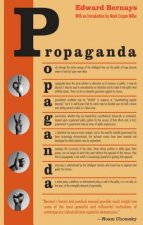
Propaganda
15.52 € -4 % -

On Palestine
14.80 € -19 % -

Palestine in Israeli School Books
51.17 € -

Citizenship
16.34 € -6 % -

Manufacturing Consent
14.39 € -23 % -

In Order To Live
11.33 € -24 % -

Long Walk To Freedom
15.21 € -21 % -

The Gulag Archipelago, 1918-1956
18.79 € -22 % -

The Gulag Archipelago, 1918-1956
18.79 € -22 % -

The Gulag Archipelago
14.91 € -23 % -
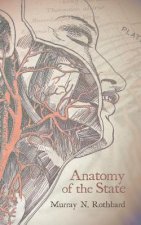
Anatomy of the State
13.17 € -19 % -
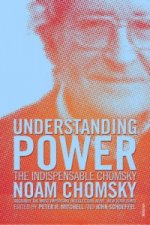
Understanding Power
18.69 € -23 % -

Parkland: Birth of a Movement
21.14 € -13 % -

Suffragettes
3.57 € -24 % -

Media Control - Post-9/11 Edition
13.78 € -

Beyond Chutzpah
45.35 € -

Stromaufwärts zur Quelle
20.42 € -

Christianity and Human Rights
48.92 € -

Nothing To Envy
9.39 € -21 % -

New Jim Crow
12.25 € -23 % -

Inventing Human Rights
15.31 € -16 % -

Gift of Love
11.13 € -23 % -

Commissar Vanishes
29 € -

Rights of Man
7.96 € -22 % -

Gulag Archipelago
18.69 € -23 % -

On Liberty
11.13 € -23 % -
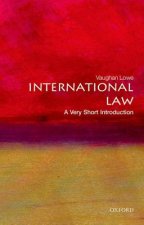
International Law: A Very Short Introduction
9.08 € -24 % -

Human Rights: A Very Short Introduction
9.08 € -24 % -
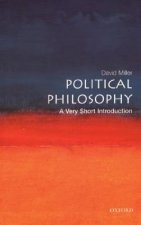
Political Philosophy: A Very Short Introduction
10.10 € -22 % -

Red Horizons
20.12 € -6 % -

Cultural Cold War
20.42 € -19 % -
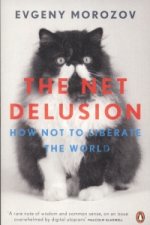
The Net Delusion
12.25 € -23 % -

How Propaganda Works
21.85 € -

Creating Capabilities
21.75 € -6 % -
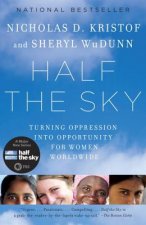
Half the Sky
13.68 € -19 % -

Uncreative Writing
22.98 € -8 % -

Summary of Propaganda by Edward Bernays
6.43 € -13 % -
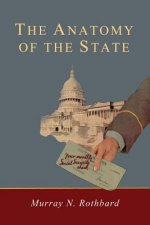
Anatomy of the State
8.47 € -

Constructing Cassandra
41.77 € -

I Have a Dream
15.52 € -15 % -
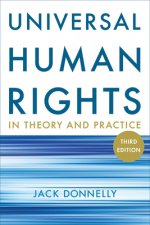
Universal Human Rights in Theory and Practice
37.99 € -

Legitimacy of International Human Rights Regimes
52.91 € -

New World of Indigenous Resistance
19.09 € -5 % -

Fear No Evil
17.15 € -19 % -
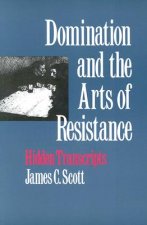
Domination and the Arts of Resistance
22.36 € -15 % -

Handbook of Tyranny
35.23 € -

Desert and the Sea
13.17 € -17 % -

In Harm's Way
73.03 € -

Witness for the Defense
23.28 € -3 %
Osobný odber Bratislava a 2642 dalších
Copyright ©2008-24 najlacnejsie-knihy.sk Všetky práva vyhradenéSúkromieCookies



 21 miliónov titulov
21 miliónov titulov Vrátenie do mesiaca
Vrátenie do mesiaca 02/210 210 99 (8-15.30h)
02/210 210 99 (8-15.30h)